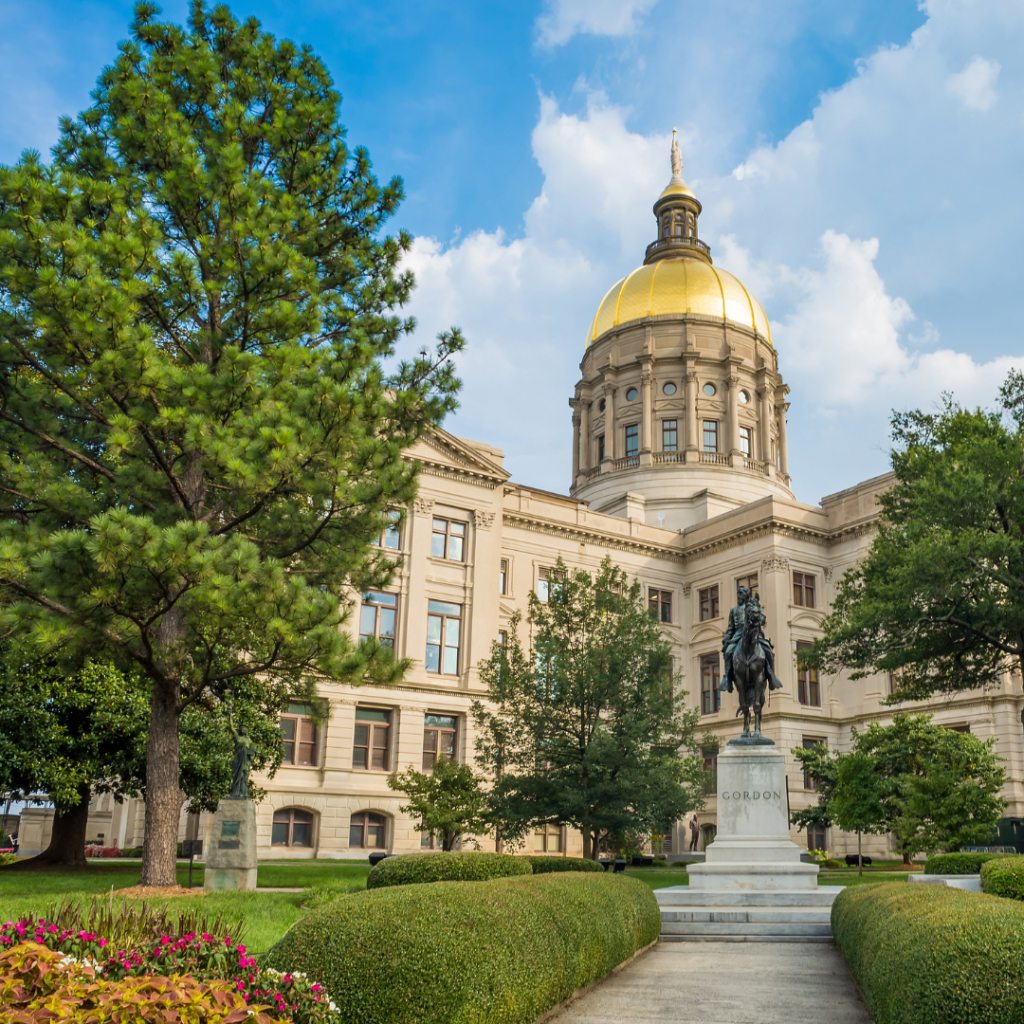As Georgia Goes, So Goes America
Georgia has been the epicenter of national politics ever since President Joe Biden’s victory over former President Donald Trump in the 2020 election. After gubernatorial candidate Stacey Abrams came within 1.4% of then-candidate Brian Kemp in 2018, anyone with experience in Georgia politics knew that the winds of change were nearing gale force strength.
The strength of the Democratic Party was reinforced with the victories of Sens. Raphael Warnock and Jon Ossoff in the 2021 runoffs as well as Warnock’s subsequent election to a full term in 2022. After almost three decades of Republican dominance in the state, Democrats were back on the map.
Now, we find ourselves in a new election year with a presidential primary on the 12th of this month. While there are a number of one-term presidents who lost their initial second-term bid and attempted a presidential comeback, only Grover Cleveland, who served two non-consecutive terms, has been successful, which makes Trump’s seemingly inevitable re-ascendance as a candidate rare in our country’s history.
Of course, by the time Georgia voters go to the polls to select their presidential candidates, the primaries will already be all but over. At least 23 states and territories will have voted before us, driving momentum for one or two candidates and putting the final nail in the coffin for the rest. While there are plenty more delegates to be claimed among the last half of the states, it will be obvious who the nominees will be.
Both parties have made a mistake by not pushing for Georgia to vote much earlier. The earliest voting states, such as Iowa and New Hampshire, have much smaller populations than Georgia and their demographics do not remotely resemble that of our country. It’s not until you get to Super Tuesday, March 5, that you find states with populations bigger than Georgia.
Our primary voting system and the order in which we do it is a relic of the past that no longer serves this country. According to Northeastern University political scientist William Mayer’s 2008 book The Making of the Presidential Candidates, a win in the New Hampshire primary increases a candidate’s expected share of the total primary vote by a remarkable 26.8 percentage points. And even a second-place finish in New Hampshire increases a candidate’s total votes by an average of 17.2 points.
That doesn’t always mean the victor in New Hampshire goes on to win the nomination – President Biden finished in fifth place in 2020, after all. However, it does give an unrepresentative number and demographic of voters an enormous amount of power and influence in the elections to come.
Of course, by the time Georgia voters go to the polls to select their presidential candidates, the primaries will already be all but over.
At a minimum, Georgia belongs closer to the front. We are now one of the most competitive states in the nation, our population more closely reflects that of the country and we have significantly more electoral votes than many states that vote before us. As was the case in 2020, we are also likely to be one of a handful of states that decide the results of the 2024 presidential election.
As part of the team that helped elect President Biden in 2020, I saw the desperation from voters for change and normalcy, which helped propel Biden to victory in our state. However, voters’ memories are often short. Despite Biden’s numerous wins on keeping inflation under control and avoiding a recession, voters still feel the pain in their wallets. Change is often demanded for change’s sake when things aren’t going well enough, fast enough.
If candidates made more early investments in Georgia, they could better gauge the mood of voting blocs that will be a significant factor in determining the victor of the 2024 election. Instead, over $130 million has been spent on TV advertising in Iowa and New Hampshire alone by Republican candidates. Those investments will, at best, pay off in the primaries but have no meaningful impact on the outcome in November.
As a lifelong Georgian, I am prepared to admit a little bias in my preference for the altered primary calendar. As a political operative with decades of experience, however, I also believe it would be not just more strategic but better for our democracy to bring Georgia forward in the primary calendar.
We may not know how Georgia will vote in November, but it is my belief that if President Biden wins Georgia again, he will win the nation.
Tharon Johnson can be seen Sunday mornings on The Georgia Gang on Fox 5 Atlanta and is the founder and CEO of Paramount Consulting Group.







